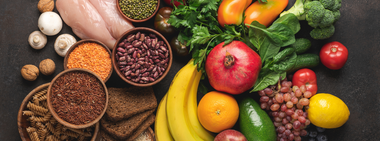Eggs, carbs and wine. Why do we get conflicting advice from nutrition studies?

Eat carbs. Whatever you do, don’t eat carbs! Protein, protein, protein. But not if it comes from eggs! Cholesterol in food is evil. Cholesterol in food is completely meaningless! Drink wine for heart health. Alcohol is completely toxic!
If you’ve ever felt frustrated by nutrition research and the headlines that follow, you’re not alone. It seems like almost every day we are treated to a parade of contradictory advice.
Have you ever wondered why this is? Especially since eating food is the most universal activity that humans engage in? After all, we’ve been doing it literally FOR EVER. So shouldn’t we, by now, have done all the research we need to do to know exactly what to eat?
There are actually five main reasons why, when it comes to food, we seem to be awash in uncertainty:
- Most nutrition studies are observational – meaning they are not designed to prove cause and effect. Rather they merely point out trends – leaving a lot of leeway for researchers to define not only what to look at but how to interpret what they see.
- Many nutrition studies rely on memory – which is notoriously imperfect. I don’t know about you, but I can’t remember what I ate yesterday let alone what I had for lunch 2 weeks ago.
- Many nutrition studies assess dietary intake at only one point in time - but draw conclusions based on prolonged follow-up. Several years ago, I ate much more meat than I do today. Does that mean my health outcome is based on my meat consumption then or my plant-based diet today? And what if the researchers don’t know that my diet changed drastically between when they measured what I ate and when they looked at my health results?
- Most nutrition studies yield boring conclusions – whereas the media clearly prefers to report “exciting” or contrarian news. There’s only so many times we want to hear that broccoli is good for us (even though lots of studies have shown this is the case)! No wonder we are regularly fed only those nutrition stories that go against the grain. This makes it seem like there’s much more controversy about optimal diet than there actually is.
- There’s no money in it! Unlike pharmaceuticals where product margins are sky high and patents rule, there is no patent protection on foods -- and profit margins are slim. Even the formula for Coca-Cola is not patented. So doing a randomized controlled clinical trial – the ultimate in scientific rigor for proving an effect and the type of evaluation routinely applied to pharmaceuticals – is never done with food products. Those trials are far too expensive, too burdensome and take far too long to be economically viable or strategically important for food producers.
This is why I reference our clinical trial so often in my blog posts. What we did is exceedingly rare in the world of nutrition research! We did a randomized controlled clinical trial, we did not rely on people’s memory of what they ate, we eliminated every possible confounding variable, and we yielded exciting results. With no giant profit motive or patent win at the end.
And what I can attest to is that doing a study on nutrition the right way is extremely difficult. It took five years and lots of funding (thank you Government of Manitoba!) and left me with many new gray hairs. But in the end, as a scientist, it was very important to me to be able to show objectively that our products work.
So I implore you not to blindly accept every breathless nutrition headline or latest food “discovery” – especially if it seems too good to be true. Unless the data is based on a well-designed randomized controlled clinical trial, it’s unlikely to be definitive. And as Oprah puts it: “The big secret in life is that there is no big secret.” We already know what to eat. We just don’t. The answer has always been, is now, and always will be Eat food. Not too much. Mostly plants.
Step One Foods just happens to be yet another proof point that this is so.
And, by the way, one glass of wine a day is probably fine. As is one egg - so long as your diet is primarily whole food plant based (i.e. heavy on the complex carbs).
About Step One Foods: Step One Foods is a line of food products that are scientifically formulated to help lower cholesterol. Founded by cardiologist Elizabeth Klodas, Step One is clinically proven to help improve cholesterol levels. We offer a variety of breakfast and snack foods that are not only delicious but also nutritionally impactful.

Tested & Proven Results.
- Cardiologist formulated
- Supported by over 500 publications
- Clinically-proven, in a double-blind randomized trial with Mayo Clinic and The University of Manitoba
80% of participants lowered their cholesterol in just 30 days. With just two servings per day, Step One Foods offers a proven-effective way to naturally lower LDL (bad) cholesterol.
Get heart health tips and articles like this, delivered right to your email.
New articles every week.
You may also like...

Insulin Resistance, Prediabetes and Type 2 Diabetes. Part 4: Un-Doing It.

You don’t need to avoid foods with cholesterol…except for these



